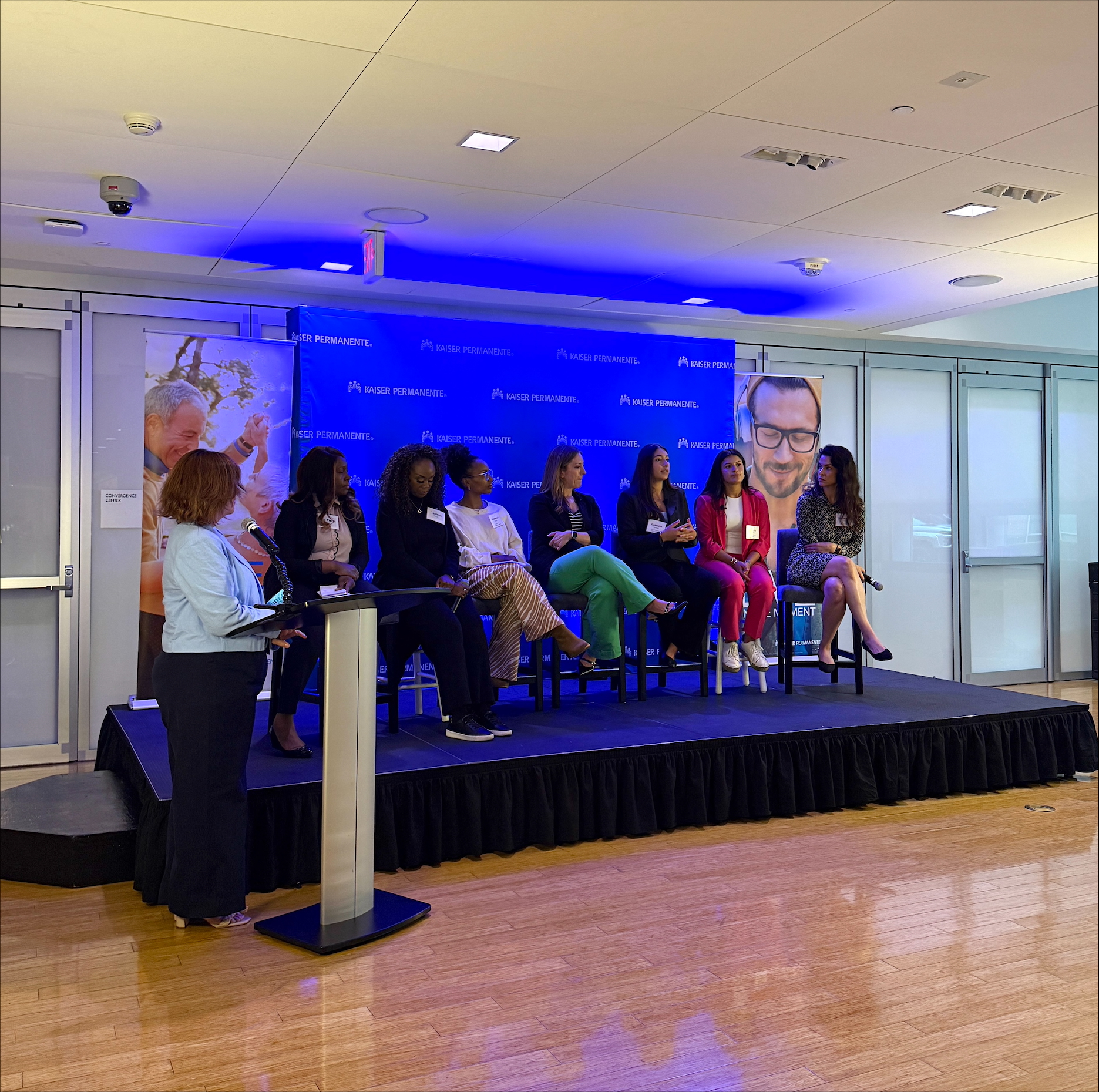The pressures of modern life, the complexity of social networks, and early childhood experiences can elevate high levels of stress, emotion, and challenges to mental health. This is especially, and increasingly, true for young people. Today, an estimated 70 – 80 percent of children who receive mental health services access those services at school. When schools support mental health, students typically have fewer disciplinary issues, can focus more, and develop skills to communicate better. This can translate to improved academic outcomes and better health later in life. Additionally, addressing mental health in students is an important factor in reducing chronic absence. The Los Angeles Trust for Children’s Health found that anxiety, depression, and mental health are currently the top health-related drivers of absenteeism in those schools. That’s why supporting youth mental health and well-being is a top priority for Thriving Schools.
In March 2023, a flagship group of 17 high school juniors and seniors from across the United States joined forces to form the first National Thriving Schools Youth Council. Together, the council agreed on a youth-related health issue to address and propose solutions. The result? An overwhelming desire to amplify student voices in supporting mental health in K-12 schools.
Today, Kaiser Permanente is proud to support the National Thriving Schools Youth Council (NTSYC) and announce its second cohort of students. This group will focus on making schools across the country healthier — physically, mentally, and emotionally — to improve their overall well-being, student attendance, and academic outcomes.
During bimonthly virtual meetings this school year, the NTSYC will use a comprehensive set of student-centered mental health recommendations for school policy. Developed by the first council, these recommendations serve as a guide to the new council as they explore how mental health impacts student chronic absence. These young leaders will propose solutions, hear from school/district officials, and collaborate on key initiatives with peers.
We are proud to introduce the 2024-2025 National Thriving Schools Youth Council. Learn more about these leaders — who they are, where they are from, and hear, in their own words, what they have to say about schools and student health.
Aissata B.
Grade 12
Federal Way, WA
“Schools need to start emphasizing prevention and intervention when it comes to student and staff health. Ensuring students are developing healthy relationships with productivity starts early! Making sure we evaluate stress levels, toxic environments of learning, and mental models that students adopt about their school and learning are all crucial to preventing cases of chronic absenteeism, increasing student engagement, and influencing attitudes about one’s future and prospects. Incorporating student AND parents’ voices throughout the process as a means of data will also help.”
Amy X.
Grade 11
Greenwood Village, CO
“I feel like student athletes should get more recognition for what they have to go through every day to reach their level of excellence. Making teachers aware of this fact would be beneficial for both sides. Countless times I have been yelled at for looking inattentive in class when I just couldn’t muster enough energy to sit up straight. Many other student athletes face similar issues as me and don’t take high level classes as a result. This brings them below their full potential as a student. Bringing awareness to teachers about their students’ out of school lives would greatly support the mental health and physical well-being of students. The same applies in the opposite direction. Students can sometimes be rude and disrespectful to teachers without knowing what they struggle with. Tolerance should be emphasized.”
Lillian M.
Grade 10
Denver, CO
“I believe that the health of students, faculty, and staff should be a main priority for everyone. There are many elements that could be implemented to improve it, but one of the most important components to me is the overall environment of schools. A clean, welcoming, nurturing space to learn in would ensure positive effects on their health. This setting can be created by establishing a basis where everyone cleans up after themselves, a kindness pact unified through signatures, and every student being able to have a trusted adult to confide in within the school building. I am certain these changes would not only significantly improve the academic space for students and the workplace for faculty and staff, but also benefit their mental and physical health.”
Matthew W.
Grade 12
Houston, TX
“Schools are an integral part of our communities and can improve the health of students, faculty, and staff by actively promoting wellness, creating resilience, and being a safe space for accessing mental health resources. I am excited to be part of this team and hope we can all be a part of a society that values well-being!”
Sophie P.
Grade 11
Pasadena, CA
“I believe that the first step to improve the mental health of students, faculty, and staff is to educate everyone on how common mental health problems are and how it can affect everyone, especially young people. Education helps to reduce stigma and can build a culture that encourages people to reach out for help. Once more people are interested in seeking help, it will be critical to give students access to services on campus, or in the setting they prefer (such as with their own healthcare provider or even telehealth). Students should have access to mental health counselors at school and licensed therapists or psychiatrists whether or not they have health insurance. However, mental health services are only part of the picture. Many students struggle at home with basic needs, such as having a safe place to live, access to the internet, nutritious food, and transportation. These types of stressors are difficult to address, but schools can help connect students and families to social services that can help.”
Thomas A.
Grade 10
Shreveport, LA
“I feel schools could better improve the health of students by providing healthier food in cafeterias and vending machines. There should be more time between classes or during the day to focus on yourself. Also, counselors should do more check-ins with each student during the year.”




